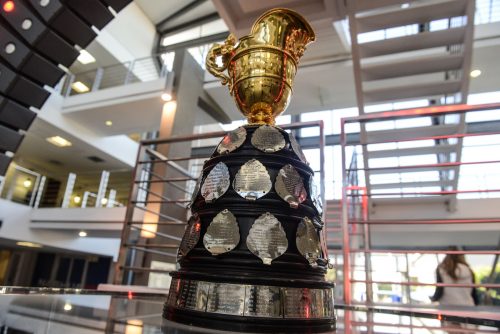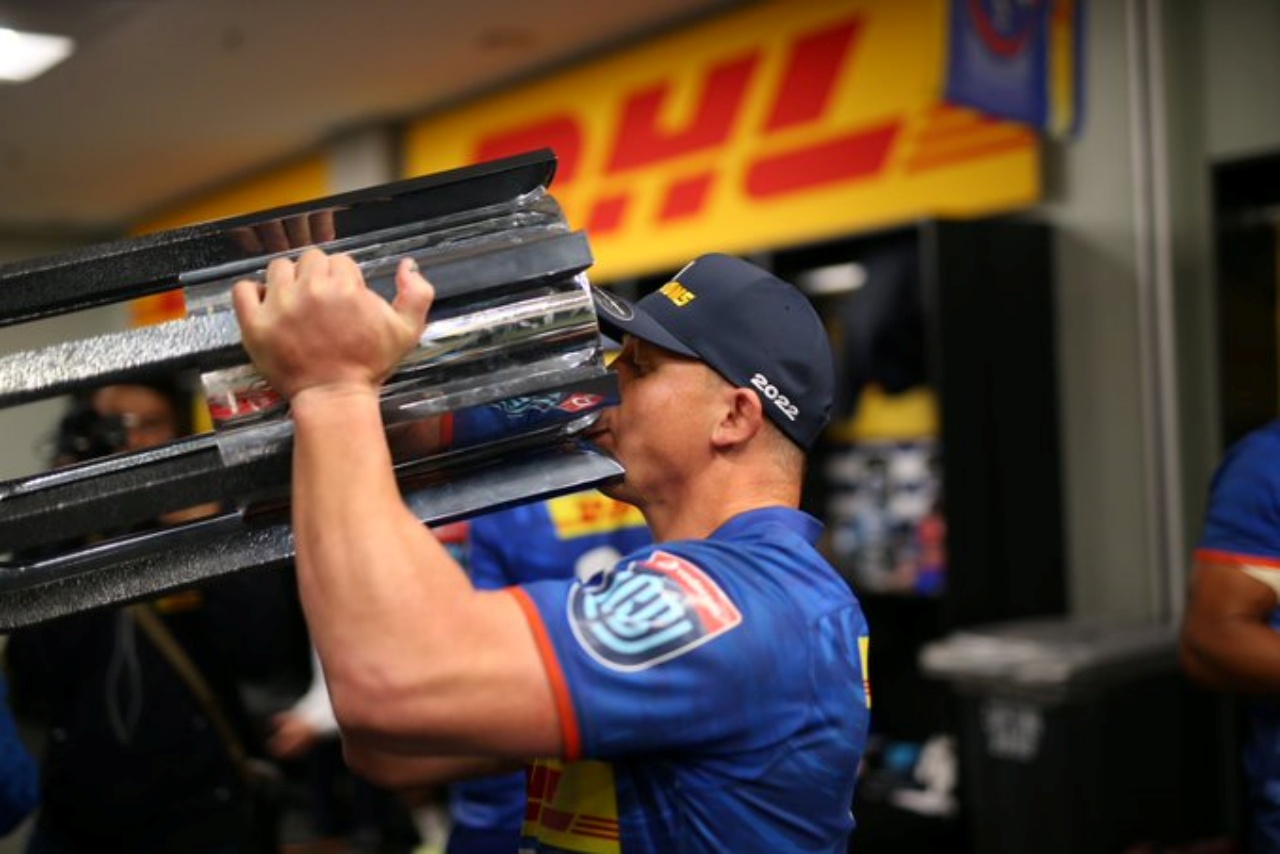The SA Rugby migration to Europe has been a resounding success. The DHL Stormers defeated the Vodacom Bulls in an all-South African final of the United Rugby Championship.
Ryan Jordan considers the success of the transition of SA Rugby’s franchise teams from Super Rugby to the URC, as well as some work to be done on the home front.
SA Rugby’s migration to Europe a success
The poor start to the competition had many wondering if the SA Rugby migration to Europe was the correct choice. It was their strong finish to the competition that served them well. Their home form was critical to their cause.
Three of the four South African teams made it to the quarter-finals of the competition. It was the Sharks, who narrowly lost to the Bulls, who were the only local team to miss out on semi-final and final participation. The Stormers’ victory against the Bulls in the final is the obvious highlight of the tournament. The Bulls’ semi-final win away against the high-flying Leinster should not be under-estimated either.
Does it get much better than drinking out of the cup after a Vodacom Man of the Match performance in your 100th game? Nobody deserves this more than @Deonf #iamastormer #dhldelivers #brannas @Vodacom #URC pic.twitter.com/kJypmWM5wA
— DHL Stormers (@THESTORMERS) June 19, 2022
Heineken Champions Cup participation
The big win for SA Rugby is that the Bulls, Sharks and Stormers will compete in the next edition of the Heineken Champions Cup. There is a further silver lining for the Stormers. They have tried to court equity partners, but no deals came to fruition. They are also currently under the SA Rugby administration. Their URC title win and Heineken Champions Cup participation will certainly have attracted new suitors and pushed the asking price up.
Challenge Cup participation
The Emirates Lions are the first South African team playing in the Challenge Cup. This is due to their participation in the URC. The real win for SA Rugby is the inclusion of the Toyota Cheetahs. They are known as South African rugby fans’ favourite second team. Their reality though is that they have often been marginalized and dropped from competitions in favour of the “big four” of South African rugby.
The “tradition” complaint
There has been some comment on social media regarding the loss of European “tradition” that came along with the SA Rugby migration to Northern Hemisphere regional competitions. There may be a modicum of truth in that thought. Is it enough to prevent rugby in general from exploring new boundaries and markets? Surely not.
Rugby is traditionally an amateur sport. There would be few who long for a return to that particular tradition. Fear of change to the status quo should be embraced as the very reason to continue to look for new opportunities to keep competitions fresh and relevant. A simple example of this is the promotion/relegation debate in the Gallagher Premiership. Without the threat of relegation, there is no fear of change and a team languishing at the foot of the table ends up playing meaningless games towards the end of the competition.
Currie Cup – is it still relevant?
There has been plenty of comment in the media and on social media regarding the relevance of the Currie Cup. A few have claimed that the Currie Cup has been “devalued”. The most notable of those was Blue Bulls coach Gert Smal after losing their Currie Cup semi-final to Griquas at Loftus. He stated further that the Currie Cup trophy should be put into a museum.

Let’s face it. The Currie Cup will never again be the premier competition for the top teams in South Africa. The Bulls, Lions, Sharks and Stormers are competing in the URC. The Bulls, Sharks and Stormers have also qualified for the Heineken Champions Cup. The Lions will be playing in the second-tier Challenge Cup and will be joined by the Cheetahs.
It is easy to say “ditch the Currie Cup”, but there are many considerations that are ignored with that simplistic thinking.
In terms of the ‘alignment of South African rugby calendar’ there isn’t a solution on the table yet, with the 2022 Currie Cup season was played alongside the URC. There was no opportunity to schedule the Currie Cup season to not clash with the URC tournament. Given the length of both the URC and Champions Cup tournaments, the only true gap in the calendar is from June to August. This is unlikely to be the solution as this would be the players’ off-season.
This is still no reason to kill the oldest domestic rugby competition, as we explore below.
URC teams need a feeder series
Aside from a few ill-advised opinions, the URC teams need a feeder series. Changing the name from the Currie Cup to anything else won’t make a difference. Suggesting that it be renamed as the “Vodacom Cup” is in itself devaluing the competition.
The Currie Cup needs to continue in its current format to ensure the best level of competition to provide a breeding ground for future URC players. A diluted “Vodacom Cup” as proposed simply will not provide the quality of competition to do that.
What happens to Griquas, Pumas, Griffons?
Speaking of devaluing the Currie Cup… the mere thought of ditching the Currie Cup is an insult to the smaller unions like Griquas and Pumas who are very competitive in the competition. They have put together decent squads and attracted worthwhile sponsors – some from their own regions. They deserve their time in the spotlight, competing in the final on Saturday 25 June.
In five days, one of these two teams will be immortalised in #CarlingCurrieCup history 🏆#ReachForGold #TheChampionWithin @blacklabelsa pic.twitter.com/NoTNxInccb
— Carling Currie Cup (@TheCurrieCup) June 20, 2022
What should not be forgotten is that these teams are very important transitional homes for young talent. Without these two teams, that intermediate home disappears. The Griffons are newly promoted to the Currie Cup Premier Division. They have two years to prove themselves and become the third side to be very competitive by developing young players looking for game time.
Those wanting to ditch the Currie Cup are most likely the “haves” and not the “have nots” and have a competition to participate in if there was no Currie Cup.
What of the First Division teams?
Speaking of the “have nots”… The teams competing in the Currie Cup First Division in 2o22 are a mix of the South African teams outside of the seven that have been competing in the Premier Division over the last number of years, along with an interesting mix of teams from Kenya, Zimbabwe and Georgia. If these teams were lumped into a single “Vodacom Cup” type competition with the stronger units, they would stand no chance of being competitive. For decades, SA Rugby has pushed the “strength vs strength” concept. A multiple-team competition as suggested would involve a multitude of meaningless games involving teams with no chance of winning.
SA Rugby migration to Europe and local implications: a long process
Hopefully, knee-jerk reactions are off the cards for now. The introduction to the URC was surprisingly successful in the first year. Space would need to be found for the Currie Cup competition. Those who are upset about “smaller” unions surpassing the more established and successful unions, should consider a reality check instead of trashing the world’s longest-standing domestic rugby competition. In this case, the Griquas and Pumas respectively beat the Bulls and Cheetahs with a squad of lower-paid, lesser-known players who were possibly better coached.
Thoughts should be focused on how to make this work instead of undermining and devaluing what promises to be a great opportunity for SA Rugby.
“Main photo credit”
@THESTORMERS Twitter account. The post is included in the article.



